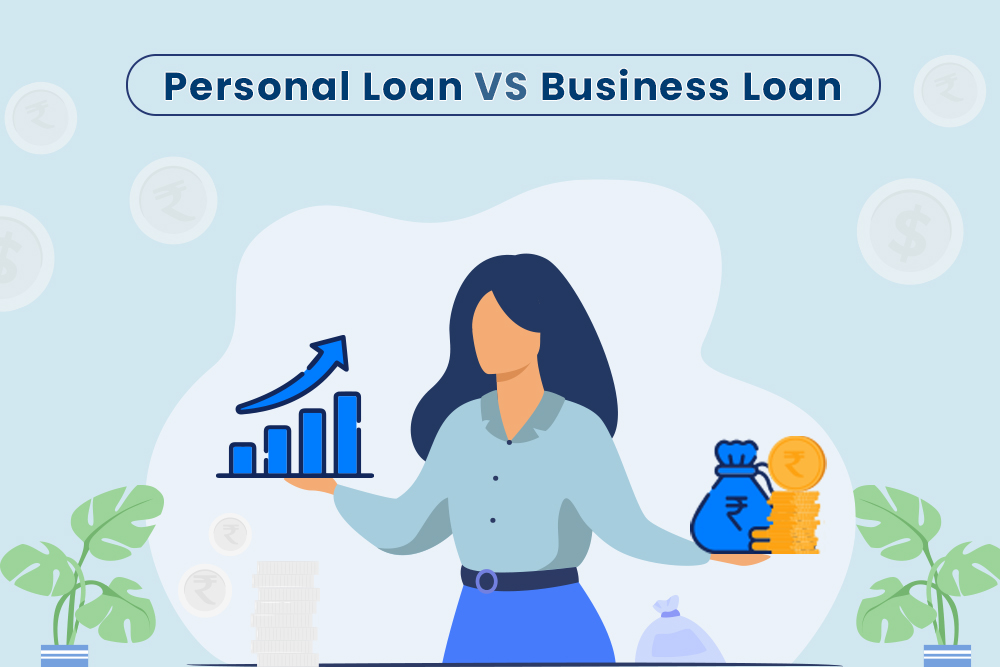In the realm of financing, the distinction between personal loans and business loans plays a crucial role in determining how individuals and entrepreneurs obtain funding for their respective needs. Whether you are looking to consolidate debt, fund a personal project, or invest in your business venture, understanding the differences between these two types of loans is essential. This comprehensive guide explores the nuances of personal loans and business loans, helping you make an informed decision based on your specific financial requirements and goals.
Understanding Personal Loans
Definition and Purpose
A personal loan is a type of unsecured loan typically issued by banks, credit unions, or online lenders to individuals based on their creditworthiness. Unlike secured loans that require collateral, personal loans rely solely on the borrower’s credit history and income to determine eligibility and terms.
Key Features
- Unsecured Nature: Personal loans are unsecured, meaning they do not require collateral. Borrowers qualify based on their credit score, income, and other financial factors.
- Fixed Interest Rates: Most personal loans offer fixed interest rates, which means your monthly payments remain consistent throughout the loan term.
- Flexible Use: Borrowers can use personal loans for a variety of purposes, including debt consolidation, home improvement, major purchases, or unforeseen expenses.
Pros of Personal Loans
- Accessibility: Easier to qualify for compared to business loans, especially for individuals with good credit scores.
- Quick Disbursement: Funds are typically disbursed quickly, often within a few days of approval.
- Flexible Use: Can be used for personal expenses or projects without restriction.
Cons of Personal Loans
- Higher Interest Rates: Interest rates can be higher compared to secured loans, especially for borrowers with lower credit scores.
- Limited Loan Amounts: Generally, personal loans have lower maximum loan amounts compared to business loans.
- Personal Liability: Borrowers are personally liable for repayment, which could impact personal credit if not managed properly.
Exploring Business Loans
Definition and Purpose
A business loan is specifically designed to finance business-related expenses, including startup costs, expansion projects, inventory purchases, or cash flow management. These loans are typically offered by banks, credit unions, or alternative lenders and can be secured or unsecured depending on the lender’s requirements and the borrower’s financial situation.
Key Features
- Secured or Unsecured: Business loans can be secured with collateral (such as real estate or equipment) or unsecured based on the borrower’s creditworthiness.
- Varied Loan Types: Includes term loans, lines of credit, equipment financing, and Small Business Administration (SBA) loans tailored to different business needs.
- Purpose-Specific: Funds must be used for business purposes as outlined in the loan agreement.
Pros of Business Loans
- Higher Loan Amounts: Businesses can typically secure larger loan amounts compared to personal loans, depending on revenue and credit history.
- Lower Interest Rates: Secured business loans often offer lower interest rates compared to unsecured personal loans.
- Business Growth: Provides necessary capital for expansion, investment in equipment, or increased inventory.
Cons of Business Loans
- Complex Approval Process: Requires detailed business plans, financial statements, and potentially collateral for secured loans.
- Strict Use Restrictions: Funds must be used for business-related expenses as outlined in the loan agreement.
- Risk of Business Impact: Defaulting on a business loan can negatively impact business credit and potentially lead to asset seizure if secured.
Choosing Between Personal and Business Loans
Factors to Consider
- Purpose of the Loan: Determine whether the funds are needed for personal use or business-related expenses.
- Creditworthiness: Assess your personal credit score and financial history to understand eligibility and potential interest rates.
- Loan Amount Needed: Evaluate the amount required and whether it aligns with personal financial goals or business growth plans.
- Risk Tolerance: Consider the implications of defaulting on a personal versus a business loan, including personal credit impact and business viability.
- Interest Rates and Terms: Compare interest rates, repayment terms, and fees associated with both personal and business loan options.
Decision-Making Process
- For Personal Needs: Opt for a personal loan if funds are needed for debt consolidation, home improvements, or personal projects. Ensure monthly payments fit comfortably within your budget.
- For Business Ventures: Choose a business loan if funding is required for startup costs, expansion, or operational needs. Explore various loan types to find the best fit for your business’s financial requirements.
Conclusion
Deciding between a personal loan and a business loan hinges on understanding your financial goals and the intended use of the funds. While personal loans offer flexibility and accessibility for individual needs, business loans provide tailored solutions for business growth and development. By evaluating factors such as loan purpose, creditworthiness, and repayment terms, you can make an informed decision that aligns with your short-term needs and long-term financial objectives. Whether you’re consolidating debt, launching a startup, or expanding an existing business, choosing the right type of loan ensures you achieve your financial goals effectively and responsibly.
